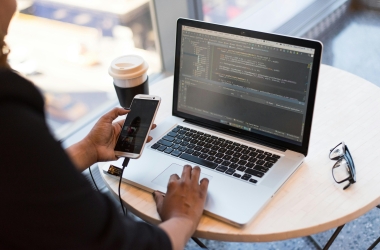Wittenborg Online News!
Wittenborg Researchers Publish Paper on Work-life Balance and Remote Working
Wittenborg Researchers Publish Paper on Work-life Balance and Remote Working
Wittenborg Researchers Publish Paper on Work-life Balance and Remote Working

Work by Rauf Abdul, Shohreh Parham and Conor Sheehan Published in Prestigious Peer-Reviewed Journal
Wittenborg scholars Rauf Abdul, Shohreh Parham and Conor Sheehan co-authored a paper that was recently published in the European Journal of Higher Education, focusing on how the recent pandemic continues to reshape the way we work considerably.
Titled ‘Work-life balance and remote working in the pandemic and beyond: The lived experiences of university academics in the Netherlands and UK’, the study explores the impact of remote working on the work-life balance of university academics in these two countries.
According to Wittenborg's Head of the School of Business Rauf Abdul, it is important to consider how the future of work will be shaped, especially with the widespread use of artificial intelligence.
“New and innovative forms of work and completing tasks will be implemented by organisations. In general, the study highlights the need for a more nuanced understanding of the impact of remote working on work-life balance. While remote working has the potential to improve work-life balance, it is not a cure-all solution and can also have negative impacts. Additionally, perhaps considering the role and impact of AI could extend this discussion to a different level. By recognising these complexities and taking steps to address them, we can create a more sustainable and equitable future of work,” he underlines.
Methods of research and findings
To undertake their research, the authors employed qualitative methods, conducting in-depth interviews with 30 respondents selected from two universities, one in the Netherlands and the other in the UK.
The study finds that remote working has had both positive and negative impacts on the work-life balance of university academics. On the positive side, remote working has allowed academics to have more control over their schedules and to spend more time with their families and loved ones. It has also reduced commuting time and travel expenses, which has indirectly led to a reduction in stress levels. Additionally, remote working has allowed academics to work from anywhere, which has increased their flexibility and autonomy, consequently increasing their motivation to contribute more in some cases.
However, the research also concludes that remote working has had a negative impact on the work-life balance of university academics. For example, remote working has led to an increase in workload and a blurring of the boundaries between work and personal lives. This has resulted in academics feeling like they are always ‘on’ and struggling to switch off from work. Furthermore, remote working has led to a decrease in social interaction and a sense of isolation, which has negatively impacted the mental health and well-being of academics.
Abdul comments that the findings of the study have important implications for policymakers, employers and employees. While policymakers need to recognise the importance of work-life balance and ensure that remote working policies are designed to support this, employers need to provide adequate support and resources to help employees manage their workloads and maintain a healthy work-life balance while working remotely.
“Employees, in turn, need to be aware of the potential negative impacts of remote working and take steps to mitigate these, such as setting clear boundaries between work and personal life and prioritising self-care. They should have clear work routines and personal time outside the set work routines,” he emphasises.
WUP 03/04/2024
by Ulisses Sawczuk
©WUAS Press
585 words